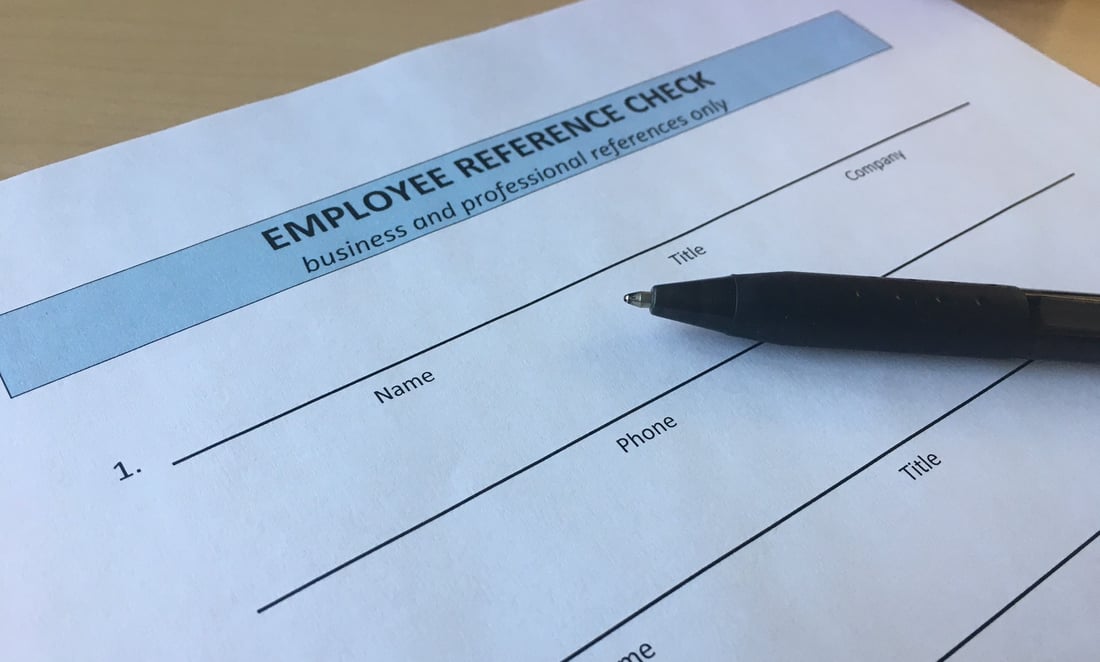Professional references can play a significant role in snagging that dream position. Yes, even in today’s candidate-driven market – especially in healthcare. As Alison Doyle, Balance Careers, says in a recent post, “References are such a powerful tool because you can promote yourself all you want in a cover letter, resume or portfolio, but you have less autonomy over your references. You can't control what your references say about you. However, you can control who you select as a reference. And, it's a crucial choice to make, with serious consequences to your job search.”
Furthermore, surveys indicate that 70-80% of employers contact one or more of the references the candidate supplied. Unfortunately, the check more often hindered, rather than enhanced, the candidate's potential for being hired. And 20% of the time, a candidate was ruled out after the interviewer contacted the reference.
So, where does your journey to outstanding references begin?
Understand the purpose of a professional reference, which is to verify your professional qualifications, including technical skills, expertise directly related to the job requirements, work ethic, aptitude, and ability to work with others. Although your personality and character traits are supporting points, your ability to do the job and do it well is key.
When choosing who you will ask, consider the typical questions, which they will be asked about you. Who are best equipped to answer these questions in your favor? Oftentimes, your list of references will be asked to rate specific technical skills, as well as soft skills such as communication, how well you work under pressure, receive constructive criticism, or interact with co-workers.
Optimizing your choices
The persons you choose to ask for a reference must be able to pinpoint exactly what makes you the right choice for the position, providing specific examples that support the qualifications they present. In other words, if they haven’t had consistent professional contact with you, they are not a wise choice. Do your homework first.
- List the specific qualifications for the position you are seeking in order of priority. Which skills and expertise were included as requirements in the job description, and which ones were listed as plusses?
- Which of your previous roles exemplifies your abilities that match the requirements?
- Who, within your professional network, can best vouch for your ability to meet those qualifications? Who can share specific examples that demonstrate those skills?
- Managers and professional colleagues from previous positions are a great place to start.
- Of course, connections within the facility where you’re applying are an excellent reference, providing they can deliver.
- For recent graduates, consider professors, coaches, or college personnel.
- In addition to being able to verify your qualifications, a reference should be someone who:
- Respects you as a person, as well as a healthcare professional.
- Will take the time to meet and discuss the position, and which of your skills are the most important to convey, focusing on both your achievements and skills that match the job.
- Communicates articulately – in both verbal and written form.
- Has background knowledge of the field in which you’re applying.
- List your potential references, putting the most influential first. By influential, we don’t mean rank and title, but who will be the most influential in swaying the decision in your favor. For example, a colleague who has worked closely with you and can give specific examples of your skills/expertise will have more influence than a manager who says you were a team player. On the other hand, if both the manager and the colleague can deliver, then the manager is your best choice. If your interviewer knows one of your references, that can raise their level of influence even higher.
- Contact everyone on your list. No matter how well you know someone, or how sure you are of his/her answer, never use someone as a reference without prior permission.
- If they agree, meet with them to discuss the job requirements and how their knowledge of your background and skills will be a plus.
- Narrow your list to the top 3-5 and create a reference sheet to give to your interviewer. Be sure to include:
- Your name, address, and contact information
- Your references’ information, including full name and title, company and department, contact information, and a brief statement about your connection with them.
Bottom line: If positioning yourself for career advancement includes seeking a new job, it’s time to get your references in order. Doing your homework and evaluating who not only knows you best but also can articulate your strengths and qualities is essential. Choose wisely –it will make a difference.
-1.png?width=292&height=64&name=LeaderStat%20Logo%20(4)-1.png)


-1.png?width=258&name=LeaderStat%20Logo%20(4)-1.png)